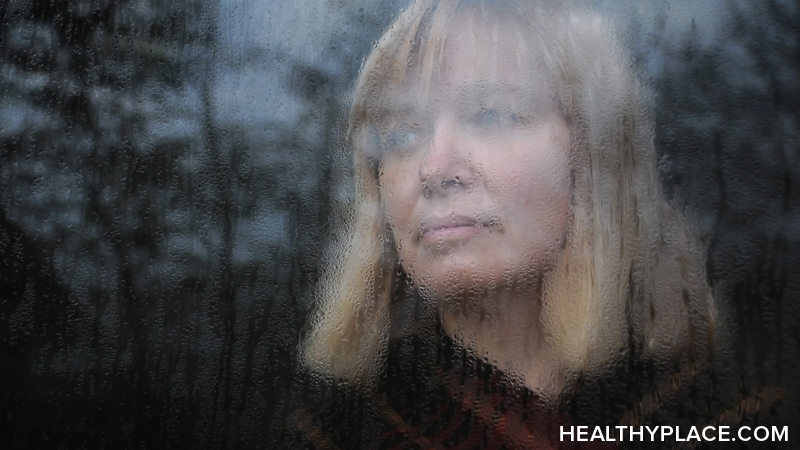Eating Disorder Health Problems and Complications

Eating disorder health problems and complications are more common, and more deadly, than many people think. Both anorexia and bulimia can cause serious eating disorder health problems including heart failure and rupturing of the intestinal area, either of which can result in death.
Unfortunately, because eating disorders are constantly glamorized by society, many aren't even aware of the internal and external eating disorder health problems that inevitably occur from these mental illnesses. Hopefully, this list of eating disorder health problems will help you, or someone you know, see why it's important to get help for an eating disorder as soon as possible.
Eating Disorder Health Problems From Anorexia
Eating disorder complications exist in all parts of the body of an anorexic. These eating disorder health problems can be life-long and possibly lethal.
Anorexia and the Heart
- Bradycardia: Slow/irregular heartbeat
- Dysrhythmia: Heart out of rhythm; an extremely serious eating disorder complication; can cause sudden death
- Decreased cardiac muscle, mass chamber size, and output: Often leading to cardiac arrest
Anorexia and the Blood
- Anemia: Insufficient iron in the blood; causes fatigue and frequent bruising
- Acidosis: Blood becomes too acidic; can cause internal damage
- Hypocalcaemia: Low blood glucose levels from low weight and malnutrition; can cause seizures
- Hypokalemia: Deficiency of potassium; can result in diminished reflexes, fatigue, and cardiac arrhythmias
Anorexia and Digestion
- Dental erosion: From calcium depletion
- Delayed gastric emptying (gastroparesis): Stomach takes too long to empty its contents due to weakened stomach and intestine muscles; can cause bacterial overgrowth or obstruction in the stomach
- Diarrhea: From delayed gastric emptying or laxative abuse
- Dehydration
- Ulcers
- Urinary tract infections: Also bladder infections; caused by decreased fluid intake
Anorexia and the Body as a Whole
- Thermoregulatory problems: Due to the decrease in body fat or electrolyte imbalance
- Decreased eye movement
- Insomnia: Mostly due to electrolytic and hormonal imbalances
- Osteoporosis: Bones weakened due to lack of calcium; make bones susceptible to damage
- Edema: Water retention imbalance causing feet and hands to swell
- Amenorrhea: Menstruation stops or does not start
- Lanugo: Soft downy hair/fur, mostly found on chest and arms, produced by the body in an attempt to trap heat; due to lack of body fat
- Dry skin
- Brittle nails
- Hair that is weak or falls out
Take the anorexia test and how to get treatment for anorexia.
Eating Disorder Health Problems From Bulimia
Eating disorder complications from bulimia can run the gamut from dental troubles to life-threatening, even fatal, medical conditions if these eating disorder health problems get out of hand.
Bulimia and Digestion
- Dental erosion: Intestinal acid that digests our food is vomited along with stomach contents, wearing away the enamel of the teeth; causes cavities and decay
- Paratoid swelling: Glands in the throat and mouth become irritated and swell
- Esophageal tears: Vomiting thins and weakens stomach lining eventually resulting in tears; can cause hemorrhaging or rupturing of the esophagus
- Delayed gastric emptying (gastroparesis): Stomach takes too long to empty its contents due to weakened stomach and intestine muscles; can cause bacterial overgrowth or obstruction in the stomach
- Chronic diarrhea and/or constipation: Can be permanent; in severe cases, all control over bowels is lost
- Ulcers
- Hypocalcaemia: Low blood glucose levels from low weight and malnutrition; can cause seizures Urinary tract infections: Also bladder infections; caused by decreased fluid intake
- Chronic sore throat
- Dehydration
Bulimia and the Blood
- Anemia: Insufficient iron in the blood; causes fatigue and frequent bruising
- Ruptured blood vessels in the eyes
- Amenorrhea: Menstruation stops or does not start
- Hypokalemia: Deficiency of potassium; can result in diminished reflexes, fatigue, and cardiac arrhythmias
Bulimia and the Body as a Whole
- Thermoregulatory problems: Due to electrolytic imbalances
- Insomnia: Mostly due to electrolytic and hormonal imbalances
- Acidosis: Blood becomes too acidic; can cause internal damage
- Osteoporosis : Bones weakened due to lack of calcium; make bones susceptible to damage Bradycardia: Slow/irregular heartbeat
- Edema: Water retention imbalance causing feet and hands to swell
- Dry skin
- Brittle nails
- Dysrhythmia: Heart out of rhythm; an extremely serious eating disorder complication; can cause sudden death
Take the bulimia test and how to get treatment for bulimia.
APA Reference
Tracy, N.
(2022, January 4). Eating Disorder Health Problems and Complications, HealthyPlace. Retrieved
on 2025, November 3 from https://www.healthyplace.com/eating-disorders/eating-disorders-overview/eating-disorder-health-problems-and-complications








